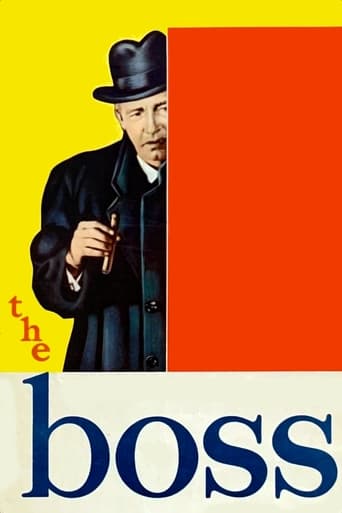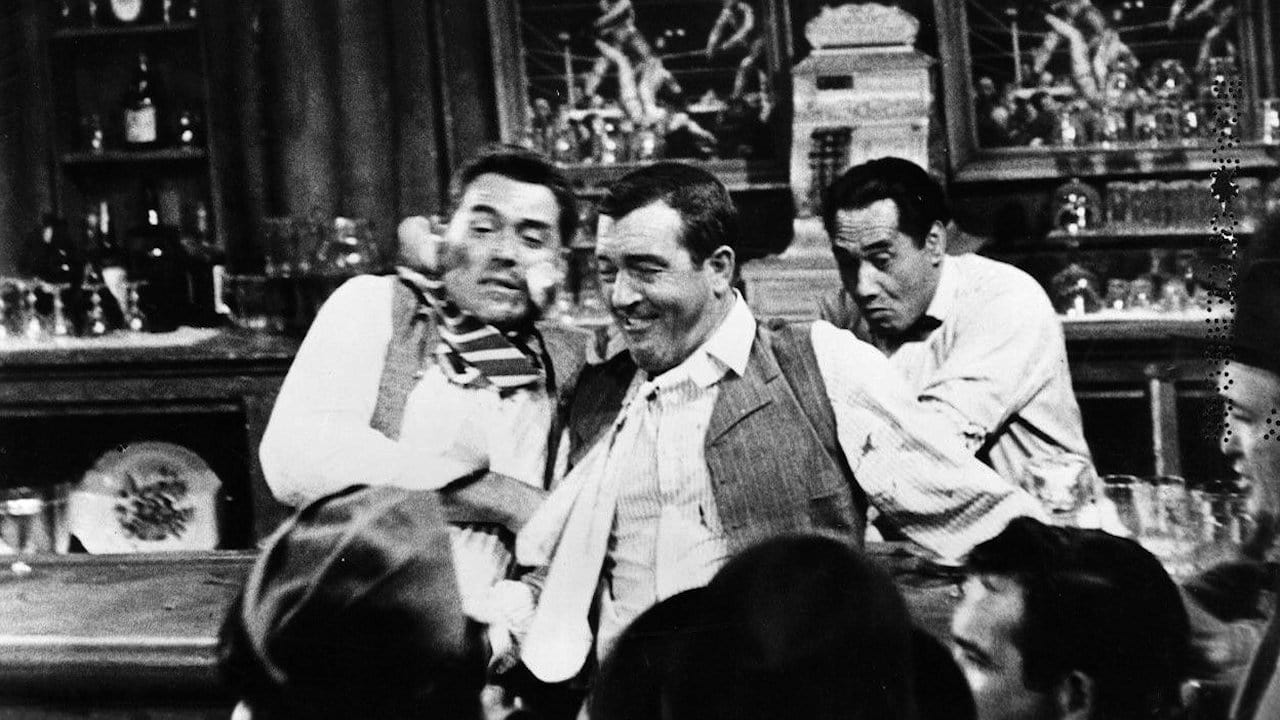JohnHowardReid
Hal Mohr's effectively low-key photography throughout this movie, plus two grippingly staged action sequences, are offset by a lot of small-budget dialogue and a hokey plot. Edward G. Robinson might have made the main character an interesting figure, but John Payne lacks the necessary charisma for such a role. The other players are not suitably cast either. And though some effort has been made to obtain a period atmosphere with a careful use of locations and the right stock footage, the final impression is negative, thanks chiefly to too much dialogue, too little imagination in Byron Haskin's direction with its over-reliance on close-ups, and two hammy performances (Payne and Gloria McGhee – a TV actress who made only three movies of which this is the first).
RanchoTuVu
On returning home from fighting the first world war, Matt Brady (John Payne) reunites with his brother Tim (Roy Roberts) after leading a well staged parade of soldiers down the main street of his home town. As the day unfolds, so does the true character that John Payne memorably plays, a combination of ruthlessness and loyalty. Inheriting a crooked political machine with tentacles that extend statewide and eventually as far as Washington, from brother Tim, who dies of a heart attack when Payne refuses to divorce Lorry Reed (Gloria McGehee), whom he met in the closing hours of a rundown bar on the same night or early the next morning of the day of the parade, the story carries Payne's character to the heights of behind-the-scenes political influence gained through widespread corruption which represents business as usual. Forced into dealing with the mob because of losses incurred in the 1929 stock market crash, Payne's character forms an alliance with Johnny Mazia (Robin Morse), a character he had earlier kicked out of his political machine but who has now become a crime boss. Morse's character is classic, his scenes with Payne are tense. Payne's rise to the top is accompanied by his ostracism from the city's social elites who blackball him from their country club. It's a tough performance, shot in the darker hues of black, white and grey by stellar cinematographer Hal Mohr.
dougdoepke
A political fixer rises to the top of a corrupt city and beyond.This is a movie that cries out for a bigger budget than the cheapjack values the production gets. After all, Brady (Payne) is supposed to be swimming in money and influence as head of a political machine. So we need to see some of that gilded life in order to appreciate his final tumble from the heights. Instead, we get endless seedy conflabs with his cronies or his long-suffering wife. In that sense, the production more resembles a TV drama, say The Untouchables, than a feature length movie.Also undercutting the effect is actor Payne's heavy-handed turn as the boss. Reviewer Plankton's correct, Payne's incessant growling is almost comical at times. It's an unfortunate one-note performance that over-does the toughness of a political fixer without the necessary slickness. Then too, writer Trumbo's script only hints at the social effects of Brady's corrupt regime without the dirty details—a rather strange outcome for a leftist writer, but then this is the Cold War 1950's.On the plus side is obscure actress McGehee's sensitive turn as Brady's unloved wife. Her plain-faced predicament is handled with considerable feeling that, to me, is the film's only memorable part. Also actor Bishop does well as Brady's lawyer and confidant. Too bad his career was cut short by an untimely passing.Perhaps I was expecting too much, but the movie came as an unfortunate disappointment. I'm just sorry a studio with resources like Warner's, along with a Sam Fuller, didn't get the material first.
Zipper69
Sorry if that title confuses but, watching this on TCM recently I was convinced this was made in the early 40's so was amazed to see the 1956 date on it. It was the staging and story arc so reminiscent of several Bogart and Cagney movies that made it seem so dated in it's overall production.That being said, John Payne gives a powerful and well nuanced performance as a man whose inner turmoil of unrequited love, filial duty and tussles with what is "right" (feeling he has to marry a one night stand) and the attraction of an easy but crooked lifestyle are visible on his gradually hardening features as he ages - nicely done.Based clearly on the Pendegast machine of the 20's and 30's the action becomes a little stereotyped, with the "good citizens" of the town having to include a priest as a sign of moral rectitude.Brady's downfall in the Crash of 1929 is perhaps a little convenient (a sharp guy like this would have had hot cash stashed in many accounts and ensured that the diamonds seen earlier were part of a large collection of readily realizable assets but, I digress)and the heavy symbolism of the final shot of Payne shuffling towards the shadow of a tall, barred prison gate, dropping the cigar that had been his symbol of success owes much to the existential films coming out of many central European studios at the time.An excellent central performance but Dalton Trumbo's uncredited screenplay lays on the "truth prevails" message too heavily.


 AD
AD
